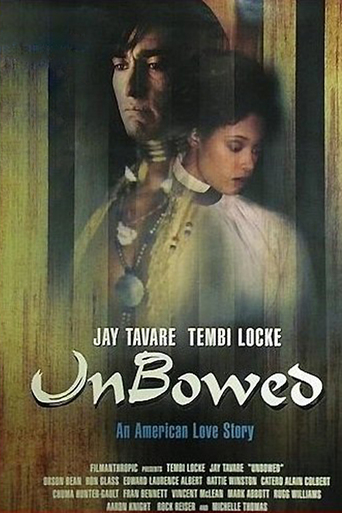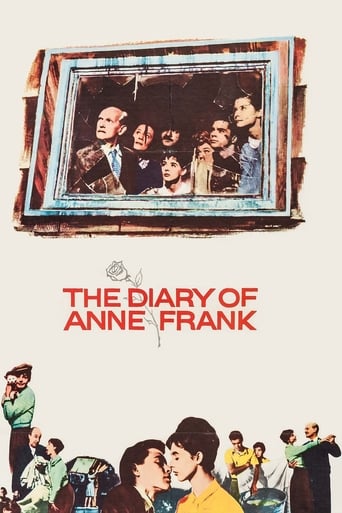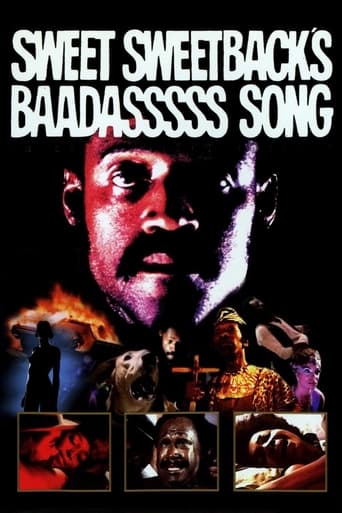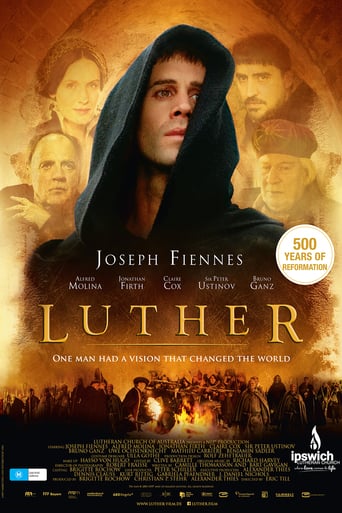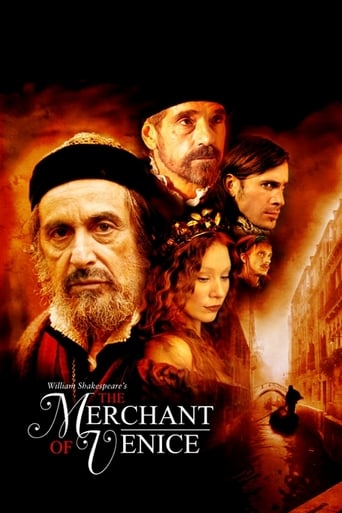
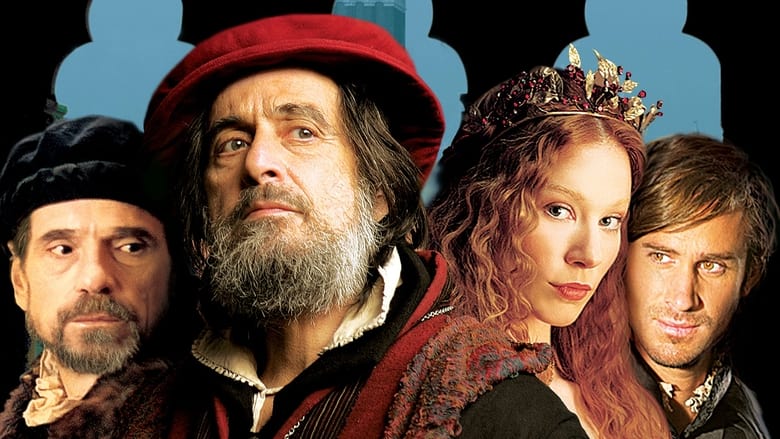
The Merchant of Venice (2004)
Venice, 1596. Bassanio begs his friend Antonio, a prosperous merchant, to lend him a large sum of money so that he can woo Portia, a very wealthy heiress; but Antonio has invested his fortune abroad, so they turn to Shylock, a Jewish moneylender, and ask him for a loan.
Watch Trailer
Cast
Similar titles
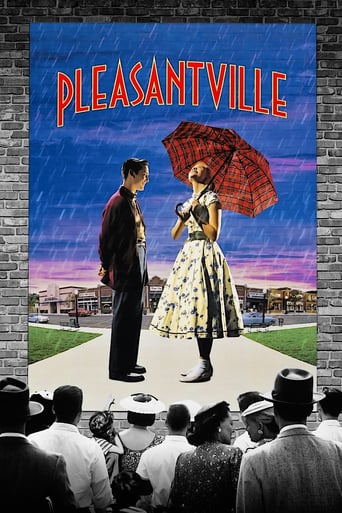

Reviews
Terrible acting, screenplay and direction.
Perfect cast and a good story
Absolutely Brilliant!
In truth, there is barely enough story here to make a film.
Set in late sixteenth century Venice, a time when Jews were heavily persecuted in Europe, Shylock is a Jewish money lender who is approached by Antonio, a wealthy merchant who has previously abused him. Antonio needs a large loan to help his good friend Bassanio woo the beautiful Portia; he is given the loan, interest free, but Shylock demands that if the loan in not repaid by the stipulated date he will have a pound of Antonio's flesh literally. Antonio isn't worried though as he owns several ships that should return to Venice with valuable cargo before the loan is due. Shortly afterwards Shylock's daughter elopes with a Christian and Antonio's ships sink this leads Shylock to look forward to the day that he can extract his pound of flesh as revenge for all those who persecuted him. Meanwhile Bassanio successfully woos and marries Portia but no sooner has he got the ring on his finger, which he swears to never remove, does he hear about Antonio's plight; he rushes back to Venice but it looks as though his friend is doomed until a boyish young doctor speaks at his trial.This is one of those stories that is so famous that everybody thinks they know it it's the one about the avaricious Jew who demands a pound of flesh of course in reality it is much more than that. For a start Shylock is a surprisingly sympathetic character; he and his people are reviled and it is clear that far from being motivated by avarice he is motivated by revenge. Of course it helps that Al Pacino gives a fantastic performance in the role; making the viewer feel his pain. The rest of the cast are impressive too; Jeremy Irons is great as Antonio; especially when it looks as if he is going to die, Joseph Fiennes puts in a solid performance as Bassanio and Lynn Collins is a delight as Portia. The story itself is an enjoyable mix of comedy and drama; sometimes at the same time. The film looks great with lots of impressive Venetian settings; it certainly doesn't feel stagy. Some viewers may be surprised at the sight of topless women in a PG rated film (UK Rating) but this is shown if a fairly matter of fact way without any titillation. Overall this was a fine film that I'd recommend to anybody wanting to watch this classic story.
It's 1596 Venice. Jews face restrictions even in the liberal city state. They are forbidden to hold property. They charge usury which is something unChristian and are demonized for it. Bassanio (Joseph Fiennes) asks 3000 ducats from melancholy Antonio (Jeremy Irons) to woo wealthy heiress Portia (Lynn Collins). Bassanio is able to get moneylender Shylock (Al Pacino) to make it an interest-free 3 month loan but Antonio must give a pound of flesh if he fails to repay the loan. There is animosity on both sides. After Antonio's ships are lost, Shylock goes to court seeking his pound of flesh.This is one of the more troubling Shakespearian plays to a modern audience. The villainous Shylock is the quintessential money-grubbing vengeful Jew that is the caricature Jew for every antisemite. There is no doubt that Al Pacino is brilliant and injects a humanity into a villain that is usually two-dimensional. In fact, it is questionable if Shylock is truly a villain in his hands. The comedy may not wear well especially as a modern play but Pacino turns it into something more compelling.
As an actor, Al Pacino comprehends a fairly narrow subset of humanity: thugs, mobsters, hustlers, operators, anyone conversant with the modern American street. He has little or no affinity for patricians, intellectuals, the cultivated, the well-spoken, or people from other times and other countries. This makes him a disastrous Shakespearean, as his Richard III so wincingly confirmed. Shylock might seem more promising, a resident of the ghetto with an earthier argot; and didn't Dusty do it not so long ago? But the 400 year-old idiom and a welter of other strangenesses stand between Pacino and the character, blocking empathy and simple understanding. He accordingly does what any actor in his situation would do. He withdraws into himself and gives a shy, subdued performance, hoping that muted incompetence will pass for restraint.Pacino spends much of the film in a state of apparent exhaustion, trudging from scene to scene with his eyelids half-open. His voice never rises above a gravelly murmur. With Jessica he shows neither sternness nor tenderness, only somnolence. His initial scene is impenetrable: why does this notorious usurer forgo interest in favor of a pound of worthless flesh? To appease the Christians with a "merry bond"? Or to tickle his vindictivenss with the mere possibility of killing Antonio? The first choice will work only if one cuts Shylock's earlier vow to "feed fat his ancient grudge" against Antonio if he ever gets the chance--a cut which this politically correct film predictably makes. The second choice is the one Shakespeare intended. Yet remarkably, Pacino plays neither, his droopy-eyed fatigue conveying no glimmer of hatred or hope for acceptance. At times he comes fleetingly to half-life, only to relapse into insomniac depletion. "Hath not a Jew eyes?" is gruff rather than furious or anguished; he is offhand rather than impassioned in the Jailer scene; and his demeanor at the trial is moody. We must assume that Shylock is motivated throughout by nothing more than weary resignation.Some critics have dubbed Pacino an accomplished verse-speaker. Since he has played only two other Shakespearean roles in a 40-year career overwhelmingly skewed towards contemporary semi-literates, this would be amazing if true. In fact, Pacino speaks terribly, his discomfort with the language manifest in his abashed muttering, and in a hesitant, halting, word-by-word delivery maintained from beginning to end. Could this be dialectal, the alien Jew negotiating a foreign tongue? No, because Pacino uses the same plodding diction with Jessica and Tubal. (Ignorance has a hard time masquerading as characterization). Phony Britishness causes him to pronounce "lord" as "lohrd;" when mingled with the strains of his native Bronx, it changes terminal-r words into earsores or rather ee-ah-saws. His mumbling articulation can have a truncating effect, as when "tourquoise" is lopped into "tourquoi" and "better the instruction" into "bet the instruction." The foreign language is Shakespeare, and Pacino is the hapless negotiator.Hollywood stars rarely distinguish themselves when they tackle the Bard, and Al Pacino is no exception. His whispery, tentative and amateurish Shylock is a monument to nothing but his own inexperience.
I was both excited and intrepid about seeing Merchant of Venice, excited because of the cast and intrepid because I worried the film wouldn't leave the cast much to work with. But I was surprised, apart from being overlong with a few scenes that looked as though they could've done with an edit I found The Merchant of Venice to be a very good film. It looks exquisite, the scenery and costumes as well the cinematography are some of the loveliest and sometimes even most ominous of any film I've seen recently. The soundtrack is just as beautiful, the story is just as compelling as the play with the courtroom scene and ring scene quite interestingly done and the writing is nuanced, intense and full of humanity considering the difficulty of adapting the play. Al Pacino is both angry and dignified of some of the best work of his of the past 15 or so years. Jeremy Irons also impresses in a suitably loyal, melancholic and in some way hypocritical(in regard to his religious bigotry) Antonio, while Lynn Collins is luminous as Portia and Joseph Fiennes proves here he is more than a handsome figure. Michael Radford directs with efficiency and sympathy also. In a nutshell, a very good movie, not my favourite Shakespeare-adapted film but worthy. 8/10 Bethany Cox



